Why ‘The Last Battle’ Spills the Beans in Chapter 1 | Talking Beasts
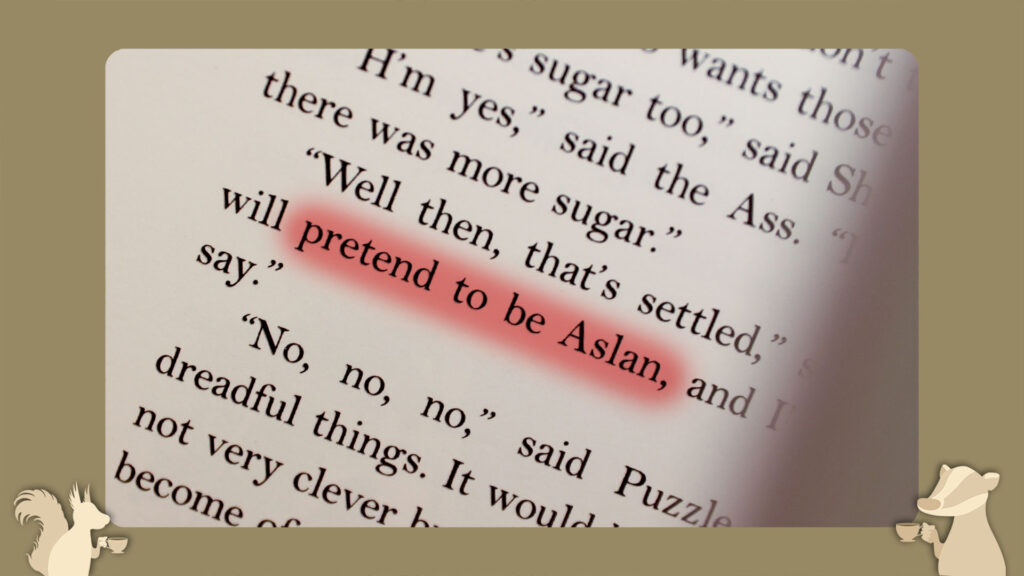
Podcast: Play in new window | Embed
The final book in The Chronicle of Narnia begins in a very different way from the others. In the first chapter, we are introduced to Shift and his plan to put Puzzle in a lion’s skin and masquerade him as Aslan. Other authors might have chosen to keep this a mystery until later. Listen to our discussion about why C.S. Lewis went this route with the story.
Please enjoy and then post a comment below!
In our post-show chatter, we discuss how this scene might be handled in a movie adaptation.


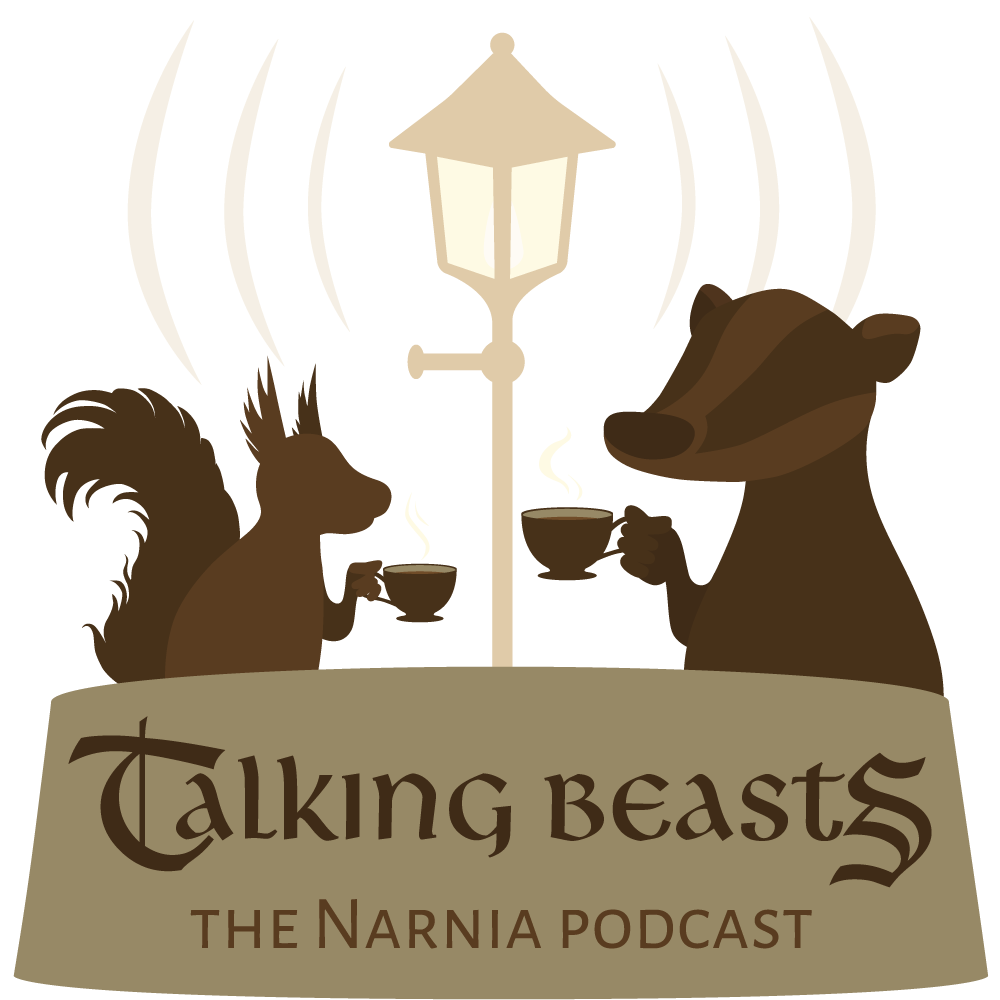
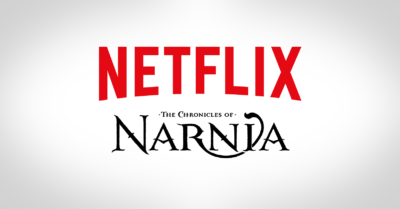
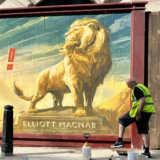

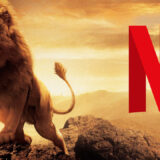
I think it would be a distressing thing to go through half the book, starting with Chapter 2 and wondering about Aslan.
Also, the reader really has to take a big willing suspension of disbelief to believe that all the Narnians believe that Puzzle is really Aslan! But I guess the explanations help with that – that they wouldn’t really remember what a lion looked like since they hadn’t been around for a long time, and that he came out in the dim light. Maybe Shift tells them that Aslan is an elderly lion? I can’t quite recall.
Concerning Aslan causing the thunderclap, the only other place in the Chronicles where Aslan behaves in a similar manner that I could think of, would possibly be when the Pevensies enter the wardrobe in the first book. It says that whether it was Mrs. Macready herself, or some magic that was calling them into Narnia. Not sure if that counts, though.
Last Battle is my favorite of the 7. As a Christian I Love the parallel to Jesus returning. Further up and further In!
I think the Narnians disbelief and falling away from believing in Aslan is very much a parallel to Lewis’ personal beliefs in God and the Bible stories of the end of time.
You didn’t hardly touch on the second part. This book is very much two books in one the first part is the death of Narnia second part is rebirth of the new Narnia (heaven). It wasn’t sad at all and everyone didn’t “die” everyone truly lives in the end. Susan was the one that died in the spiritual sense. Which was, I think, Lewis’ aim in the Last Battle.
I’m pretty new to the Talking Beasts podcast and NarniaWeb, but I love listening to these. Keep up the great work!
I really related to what you guys said. The Last Battle is not my least favorite book, but it is the one I reread the least. When I do reread it though, I love it.
I don’t buy the idea that C. S. Lewis gave away what was happening with Shift and Puzzle to avoid traumatizing kids because…well, look at the story! He obviously didn’t have any qualms about that. 🙂 I agree with the idea that he was going for a different effect. It’s like the tragic plays Oedipus Rex and Othello where the audience knows (or can easily guess) the big, dark secret but the main characters are totally oblivious to it and it’s like a trainwreck from which you can’t look away. If we began the book with Chapter 2, I think we’d feel more curious and intrigued than devastated or disturbed. Rilian summarized this nicely. I’d also argue in a weird way, the way the book does it creates more suspense. If we didn’t know Shift’s secret at the beginning, we’d be sure that C. S. Lewis was going to inform us eventually. Since he tells us at the beginning but not the heroes, we’re kind of wondering if they’ll ever find out the truth. I will concede though that if Chapter 2 came first, we probably would empathize with Tirian and Jewel more immediately. As it is, we’re sort of “above them.” I feel I end up empathizing with them eventually though.
I also hate Shift more than the White Witch. Maybe that’s why the Narnia books don’t seem anti-woman to me as they do to some readers.
I’d be opposed to withholding the reveal of Puzzle in an adaptation for reasons I get into above, but it wouldn’t have to ruin the whole thing for me. It might get things off on the wrong foot, but it could redeem itself. (A compromise I might suggest is show the events of Chapter 2 first, then flashback to Chapter 1, then go back to Chapter 3 and proceed chronologically. Ironically though, I think that would work better in a book than in a movie.)
I was never bothered by Shift not second guessing whether Aslan is real or not after the thunderclap and the earthquake. I mean, if something like that happened after an atheist said something blasphemous in real life, I don’t think they’d immediately become a theist. I imagine they’d assume it was a coincidence and make a joke about it. (I’m sorry if that sounds like I’m picking on atheists. I don’t want this comment to be about picking on anyone. 🙁 It’s not like I think people should change all their assumptions whenever there’s an interestingly timed phenomenon.)
Is it really a minority opinion that The Return of the King is the best Lord of the Rings movie? I don’t watch those movies much but when I do, I like that one the best. Maybe it’s because I think it has the best music. Maybe it’s because it doesn’t end on a cliffhanger. I don’t know. But I’d interested to know if I’m the only one feels that way.
On the Lord of the Rings question, Col Klink, I don’t compare and contrast the 3 movies. I see them as one big movie, split into 3 parts for logical reasons. I seem them equally a masterpiece, one that has been hard to replicate.
I also hate Shift more than the White Witch. And in adaptations, there is a need to show that the White Witch is appealing to Edmund in some way, so she can’t be introduced as a person we wickedly hate. But Adamson did show her freaking out when she turns away (physically, at her sleigh) from Edmund, so we know something is up.
But Shift is simply an ape we can hate. I think this could be a great character in an adaptation. I like him in the Radio Theatre adapation. They created a good “voice” for him.
Yes, we see Shift planning something, & we also see how he manipulates Puzzle. But it is only through the book that we find out fully, what that something is.
Really looking forward to listening through your The Last Battle commentary. So often I find myself discussing the larger plot-points, issues, or narratives surrounding the book that I overlook those smaller details. It’ll be good to slow down and listen to insights chapter by chapter!
I appreciate the unintended name-drop
Nice discussion, I’m excited for the next episodes!
On the chapter 1 vs 2 issue: I agree with Rilian and Col Klink in that I don’t think adding chapter 1 makes the story less traumatizing. The effect that it has on me is that I experience how true a lie can look (as the reader is empathizing with the Narnians) while knowing that it is not true. (Lewis likes to do that: Consider the behaviour of the antagonists in the latter part of “Out of the silent planet” who believe that the Malacandrans want a human sacrifice while Ransom has realized that this is wrong.) Also, considering the role of lies in Lewis’ writings (starting with the lies by Jadis both in LWW and in MN over the lies of the Lady of the Green Kirtle in SC up to the idea that the best lie is made up of mostly truth in LB), I personally think that this is what he was going for.
A bit unrelated, but it stands out to me that Narnia books primarily tell the story from one character’s perspective: That is, Lucy, Shasta/Cor, Digory, Jill, and in LB, Tirian. There are a few exceptions (like in HHB where we watch the battle with the horses and Aravis, instead of Cor), but usually that is how it goes. So it’s really interesting that Lewis decided to start off the story the way he does. He neither takes the perspective of Shift or Puzzle. Instead, he tells the story like an unaffected observer. By not giving insights into the perspective of one of the characters, he reveals the truth from an objective perspective (the narrator’s perspective).
I always got the sense that Shift thinks Aslan either doesn’t exist or exists but doesn’t act in the present i.e. yes, there were dramatic examples of his power in the past, but he doesn’t do that sort of thing anymore. When Puzzle suggests that Aslan might be angry with them because of their charade, Shift even says that Aslan never shows up anymore.
One thing I noticed while reading this chapter is that Puzzle doesn’t seem as dumb as he thinks he is. He may not be a genius or anything, but he had several sensible opinions in this chapter, but each one was shot down by Shift and he just went along with it. If anything, he’s easily led.
I agree with Reepicheep775 about Puzzle.
I agree with Reepicheep775 about Shift.
🙂 I agree with Reepicheep775 in that I am not suprised that Shift is not scared by the thunderclap. If a man believes in no God or that God is weak, he has no reason to be worried about Him.
Another great episode. I was surprised tho at the discussion around Shift and the thunderclap. I’ve always simply taken it as evidence Shift doesn’t believe in Aslan. He doesn’t come across to me as a figure so assured of himself that he believes Aslan exists and is willingly challenging him. He’s someone with no belief, thinks that those old stories are a nonsense, but sees a way to use them for his own benefit.
I do agree: that makes me very angry with him, and I do think that sets up his and Puzzle’s characters in a way that impacts (positively) the remainder of the story.